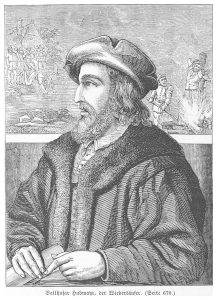By: David L. Cummins (The following is excerpted from “This Day in Baptist History II”, p. 655)

“The 1520s were momentous days in the religious world! Martin Luther was declared a heretic and was excommunicated by Pope Leo X in 1520. Luther finished the translation of the German New Testament in 1522. Zwingli abolished the Catholic mass at Zurich in 1524. William Tyndale’s translation of the New Testament was printed by Peter Schoeffer at Worms in 1525, and in 1528 Balthaser Hubmaier, the Austrian Anabaptist, was burned at the stake in Vienna. The Reformation was in full bloom, but the Anabaptists, who had preceded the Reformers, were to be disillusioned at every turn. Rather than finding compatriots in the battle for truth, our Anabaptist forefathers discovered that they were in a pincers movement with Rome on one side and the Reformers on the other. Rather than being considered colleagues, the Anabaptists discovered that the Reformers looked upon them as combatants.
On November 30, 1525, the following proclamation against the Anabaptists was published in Zurich by the Zwinglians: ‘Therefore, we ordain, and it is our will, that henceforth all men, women, young men, and maidens, abstain from repbatism, and from this time practice it no more; and that they bring their children to be baptized. For whosoever shall act contrary to this public order, shall, as often as it occurs, be punished by a fine…and if any shall be altogether rebellious, they shall be dealt with severely…”
Five years later, harsher measures were adopted and proclaimed, and the death penalty was assured…The Anabaptists became the target of such inhuman abuses as defy description from both Rome and the Reformers…
As children of God, we cannot harbor malice within our hearts. The attitude of God’s children is to be that exhibited by Stephen in his martyrdom. He cried out, ‘Lord, lay not this sin to their charge.’ However, when we consider the price that our Baptist forefathers have paid to provide us the freedom to worship God according to His precious Word and the dictates of our own hearts, we are faced with the wonderful legacy of truth that is ours. We dare not carelessly dissipate truth by amalgamation with error. Only ingratitude could allow us to enter into ecumenical endeavors of the day. Surely we must stand in a position of separation unto God and away from error…Let us thank the Lord for our heritage of holiness.”




